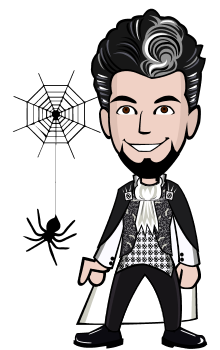
(Image source: Google.com)
If you stumbled to this post, then it can only mean that you are interested on learning the English language. If so, then you came to the right place as included herewith are answers to questions such as:
• Can I learn English easily and conveniently?
• How long will I learn?
• Where do I begin?
These are just some of the common questions readers have when they are trying to learn English.
However, it is worth noting that the contents of this post will not teach the reader how to learn English per se.
Instead, this post will answer the questions above and even shed additional truths on certain misconceptions about the English language. And in doing so, this post hopes that the reader will be more motivated to learn English.
Easy to start – difficult to master

(Image source: Shutterstock.com found on Google Image Search)
First off, it is important to understand that learning any other language is difficult. There is no exception to this rule (unless you are a super genius that easily absorb and learn new materials).
Luckily, English is the type of language that is easy to learn at the beginning. For those who are wondering why, below are some of the typical reasons:
• It is widely used.
• Repetitions / use of common grammar
• Recognizing English words is easier because the alphabet is only composed of 26 letters (though pronunciation is a different story)
If one is to notice, when a person starts with his/her English lessons, he/she could easily practice with the huge amount of information and media readily available that utilize using this particular language.
A person can easily practice speaking English by simply listening to English-speaking DJs on the radio, singing English songs, watching American TV series, or by simply watching English clips on YouTube. One can effortlessly recognize English letters and speak out simple words and terms.
In fact, there is a plethora of tutorials on how to speak English language on the web. Let us a look at the following free online tutorial sample videos that readily available on YouTube
(Both videos are courtesy of YouTube.com)
Where does the problem start?

(Image source: Google.com)
Just because the English language is easy to learn in the beginning, many people have this notion that the problem or difficulty starts after learning the basics.
Yes, this is true to some extent. However, when the lessons are not started correctly, then it would be a slow learning process. One has to realize that for proper knowledge to be attained, it must start correctly.
The student must know where and what basics to begin studying, how to read and speak these basics, rules governing correct usage, etc…When there is a proper course outline, transitioning from one level to the next would be most advantageous for the student.
How soon can the student be a master?
Answering this question is quite tricky. As mentioned quite considerably all throughout this post, the language is only easy at the early stages. A person can learn the basics in no time at all given a good teacher, study program, and lots of practice.
If you really want to master the language’s complex grammar rules or the type of knowledge that extremely high-paying jobs require – then passion, dedication, and time is a requisite.
Why study the English language?
There are a plethora of reasons on why. But since this post has gone long enough, I would only give a few convincing ones – beginning with “It’s because English is the most widely used and recognizable language”
In any country, there is a guarantee that a handful of people would be able to speak and understand basic English. It is also safe to assume that local informational or public places (like libraries, newsstands, eateries and restaurants, etc…) would have one or two employees who knows how to speak English. In fact, some might even have a English translation in their menus.

(Image source: Google.com)
Learning English is an extremely good idea. It makes the person appear more educated, it is a good addition in the resume, and gives out a professional ambience.
Besides, learning is not that difficult given the numerous available tutorials. One can be resourceful and learn in his or her own pace and convenience. That being said, here are some tips and tricks to get you started with the English language:



